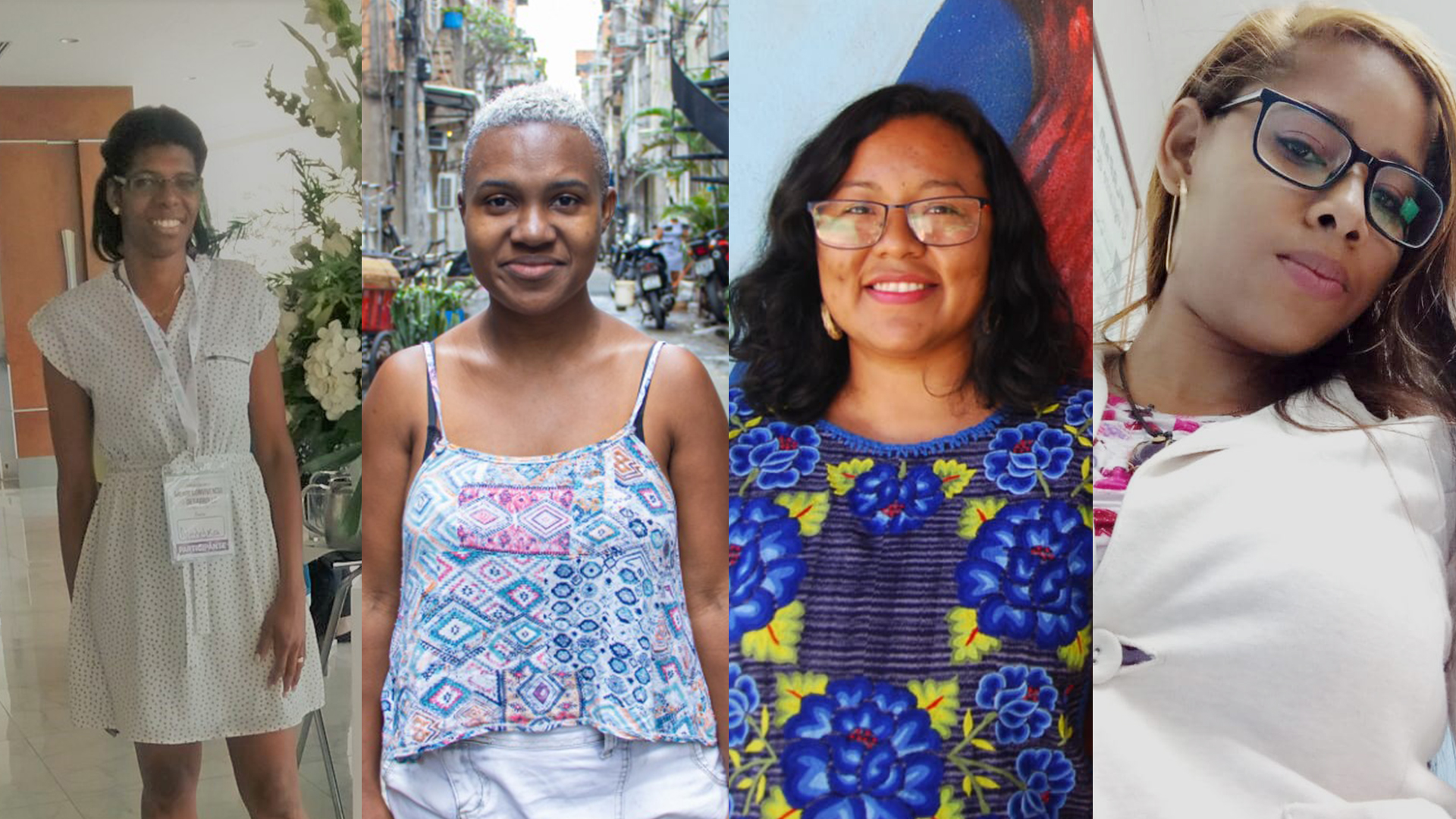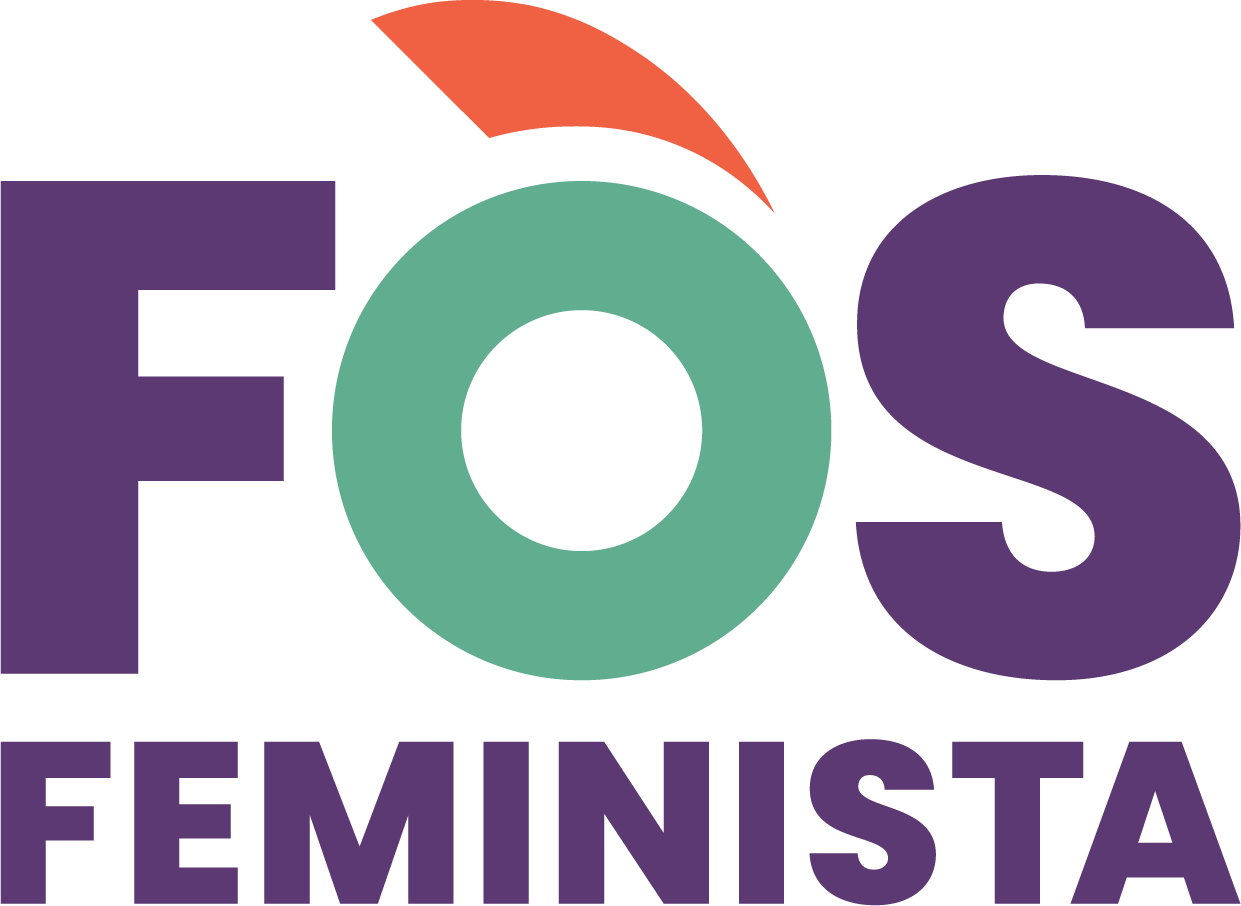
Young Afro-descendant feminists are leading agents of change in countries across Latin America. From left to right: Nedelka Lacayo (Red de Mujeres Afrolatinoamericanas, Afrocaribeñas y de la Diáspora), Fernanda Viana Araujo (Redes da Maré), Dhyada Zuleima Herrera Morga (Mano Vuelta), and Glendys Blanco (PLAFAM). © Fòs Feminista, 2022.
We’re honoring Black History Month by celebrating the Black women leaders working with Fòs Feminista partners.
February is Black History Month and we celebrate it by acknowledging Black women leaders working with our partners organizations throughout the region. They’re changing the lives of women, girls, and gender-diverse people in countries like Mexico, Honduras, Venezuela, and Brazil—and their stories will inspire you:
Nedelka Lacayo
Red de Mujeres Afrolatinoamericanas, Afrocaribeñas y de la Diáspora (Honduras)
Network of Afro-Latin American, Afro-Caribbean and Diaspora Women (RMAAD) has members from almost all countries from the region. Nedelka is one of them. She lives in Tegucigalpa, Honduras’ capital where she works to promote and defend Black women’s rights. One of the things Nedelka enjoys the most is the facilitation of capacity strengthening processes with young women and girls on human rights and advocacy.
“Black women’s leadership is crucial because only when we’re empowered and sensitized, we leave our mark for future generations. We need to understand that machismo, racism, and other forms of discrimination have impacts on our lives, including our sexual and reproductive decisions. If we don’t do anything to fight those attitudes, our lives may be miserable because on top of those problems, we as Black women are more likely to live in poverty and experience abuses from the government”.
Fernanda Viana Araujo
Redes da Maré (Brazil)
For the last 20 years, Fernanda and her community in Rio de Janeiro’s Maré favela have been promoting social integration among residents of the area, health strategies including sexual and reproductive services, and the defense of human rights. She was born and raised in the favela where she still lives with her three children. Fernanda oversees the Access to Justice program of Redes, but when the COVID-19 pandemic began in 2020, she and her colleagues shifted their focus to support the most vulnerable in her community, bringing food and organizing health brigades to facilitate access to care and basic supplies for the most affected residents of the favela. Her two adolescent children are already participating in activities to improve their community along with her, which fills her with pride.
“My whole life has been permeated by a care network, which has supported my survival in many moments. Having this support network is very important for the residents of the favela, but when this network is also weakened, who helps you? Unfortunately, not the State, which should have done it. It was us, who did it with a lot of good will when the COVID19 pandemic hit the hardest”
Dhyada Zuleima Herrera Morga
Mano Vuelta (Mexico)
Mano Vuelta is a feminist organization based in Oaxaca, one of the most ethnically diverse states in Mexico. The organization’s executive director, Dhyada Zuleima, identifies as African-Mexican, an identity that only recently gained recognition on Mexico’s census. She has implemented projects that promote empowerment and political participation of women and girls from Indigenous and Afro communities in a region where machismo, lack of education opportunities, and poverty leave limited space for women’s involvement in public life.
“I was born and raised near the coast of Oaxaca. Then I left to continue studying. Once I finished, I returned to my community of origin to accompany a process of community strengthening with Indigenous and Afro-Mexican women and girls. It has been a great challenge but when you do it with a great team, the journey is warm and loving.”
Glendys Blanco
PLAFAM (Venezuela)
Glendys lives in Curiepe, a municipality near the Atlantic coast, surrounded by cocoa trees and drumbeats of African origin. Once Glendys graduated from college in Caracas, she did an internship with PLAFAM where she became an expert on sexual and reproductive health and rights. Glendys is now part of a group of promoters of reproductive health and counsellors for victims of gender-based violence. Venezuela has endured a years-long humanitarian crisis that has prevented women from accessing even the most basic health services. Glendys and other PLAFAM counsellors help hundreds of women find places where they can get the care and support they need.
“Black women have very limited opportunities in life because of all the prejudices that are rooted in people’s beliefs due to racism, even in places where most of the population is Afro descendant. Venezuelan women are unable to exercise their sexual and reproductive rights, but Black Venezuelans face even more challenges in the context of the crisis. We need to create societies that respect the differences in race and culture. We must work to ensure that there is union and appreciation of diversity.”






